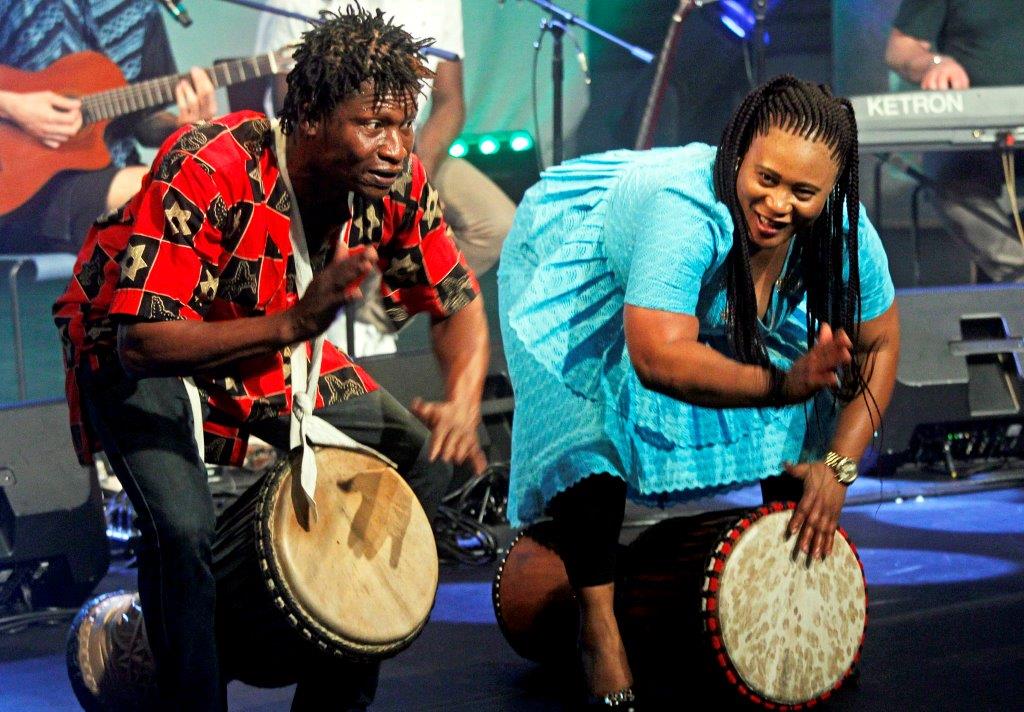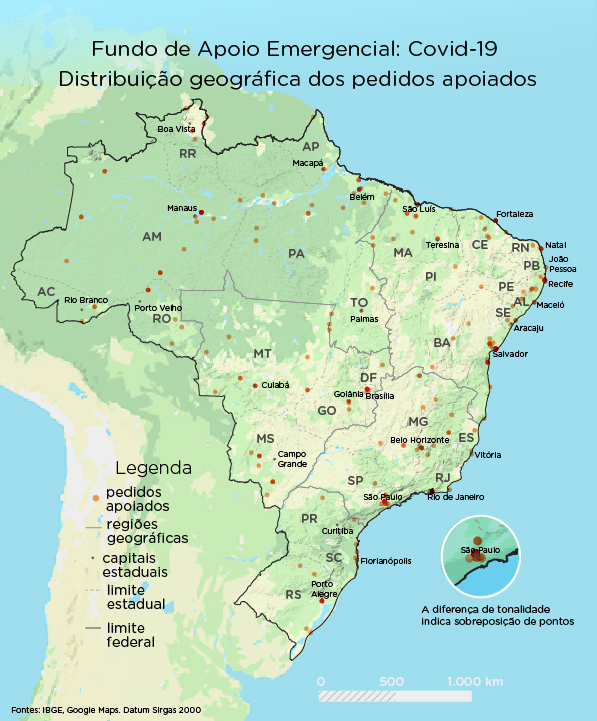By Ana Valéria Araújo, Executive Director of the Brazil Human Rights Fund
*This article was first published on the Philanthropy for Social Justice & Peace’s website
For the majority of the population, social rights are not gifts freely offered by those in positions of political power. Although most Brazilians can’t see this, all these rights were won by the mobilization of organized civil society.
In recent weeks, Brazil has witnessed a clear example of how popular mobilization is the one authentic force which can secure rights. In response to the rapid advance of the Covid-19 pandemic, the Brazilian Congress has approved, and President Jair Bolsonaro has sanctioned, in record time, the establishment of an emergency basic income of R$ 600 for each low-income families, which will be payed for three months.
Because of the coronavirus crisis, the debate on basic income was rekindled in the outskirts of large Brazilian cities. The debate made the agenda of Congress in less than two weeks, marking the period between the confirmation of the first coronavirus death in the country, on 17 March , and the vote in the Chamber of Deputies, on the 27th of the same month. Just three days after the debate, the basic income was approved by the Senate .
On 16 March , a Monday, employees in offices across Brazil had begun working from home. Meanwhile, activists and social movements began a vigorous campaign to draw attention to the many Brazilians who do not have the financial resources to practise social isolation or to protect themselves from the new virus , either because they live in areas of high population density and insufficient infrastructure, or because if they are not able to work, they cannot afford to eat.
On 20 March , Rede Brasileira de Renda Básica (the Brazilian Basic Income Network), Coalizão Negra por Direitos (Black Coalition for Rights), Instituto Ethos, Nossas and Inesc launched an online petition for an emergency basic income. More than 130 NGOs, institutes, foundations and networks from all over Brazil joined the campaign, which collected 500,000 signatures in just three days and created the pressure to demand an efficient response by the authorities.
Caught up in an erratic response to the health crisis and having approved a provisional measure that, besides allowing wages to be suspended for four months, granted only R$ 200 of financial assistence to workers, the Bolsonaro government then tried to claim responsibility for the initiative themselves, increasing the R$ 500 proposed by the opposition to R$ 600. The fact is, though, that the president authorized this amount because the public opinion now favoured a more substantial relief for workers.
There are many other examples in Brazil’s recent democratic history which clearly illustrate that rights are only won by the action of organized civil society. The 2006 Maria da Penha law was the result of decades of campaigning by Brazilian women’s movements, which achieved an important milestone in 1985, with the creation of Conselho Nacional dos Direitos da Mulher (the National Council for Women’s Rights).
The long struggle of the Black movement to tackle discrimination and structural violence against the Black population is the basis of the law that made racism a crime, just over 30 years ago, the creation of Estatuto da Igualdade Racial (Racial Equality Statute) and the adoption of racial quotas in universities.
The inclusion of a specific Chapter in the 1988 Brazilian Constitution, which recognizes Indigenous peoples’ permanent rights over their lands, their culture and their ways of life, resulted from their own struggles and from those of organized civil society during the revision of the Constitution.
Now, more than ever, when the country needs to be able to resist the effects of the Covid-19 pandemic and to guarantee the dignity of the entire population, recognizing and strengthening the role of civil society is essential.

























